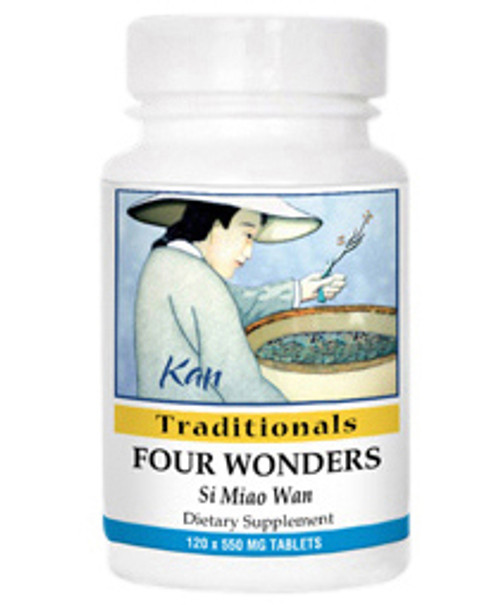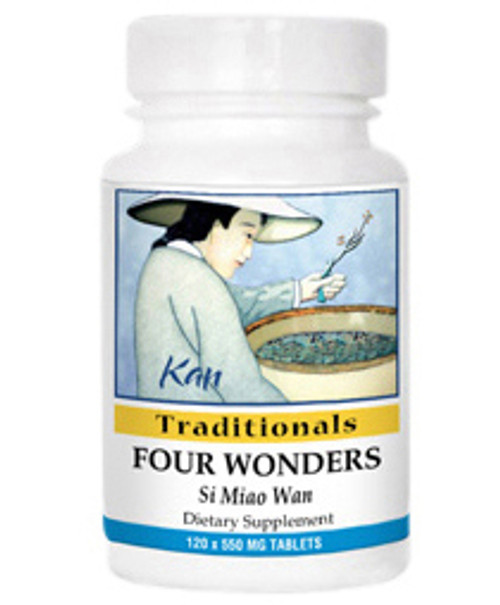
Product Description
Four Wonders, 300 tablets
| Unit Size | 300 |
| Potency | 7:1 |
| Contraindications | Caution should be used in cases involving Liver and/or Kidney deficiency. Contraindicated during pregnancy. |
| Chinese Symptomology | Damp Heat conditions, Hot Leg Qi |
| Western Symptomology | Weakness, numbness, stiffness and/or atrophy in the lower extremities with significant inflammation; painful, swollen, or spasmodic feet; painful joints, arthritis, gout, weakness and stiffness of the lower back; polyuria, mucoid discharges, increased thirst and/or appetite; hyper-excitability; intolerance of heat; and malodorous gas or skin secretions |
| Actions | Clears Heat and dries Dampness |
| Pattern | Damp Heat in the Lower Burner |
| Tongue | Red, especially on the underside; yellow, greasy coat |
| Pulse | Slippery, rapid |
| Chinese name | Si Miao Wan |
| English name | Four Wonders, 300 tablets |
Description
Four Wonders addresses Damp Heat conditions that may occur due to an invasion from the Exterior or from excess Dampness that transforms into Heat in the Interior. While Damp Heat may affect all three Burners, it tends to settle in the Lower Burner, creating such symptoms as a sensation of heaviness in the body and fever that worsens in the afternoon. If Damp Heat has lodged in the genital region, thick yellow, foul-smelling vaginal discharge can occur. Four Wonders is helpful for urinary tract infections with burning or painful urination, as well as vaginitis and leukorrhea. It also addresses atrophy and auto-immune disorders characterized by Damp Heat accumulations.
This formula is also designed to address a condition known as Hot Leg Qi (Re Jiao Qi), a disorder caused by an attack of Pathogenic Dampness, or by internally-generated Heat and Dampness pouring downwards to the legs and feet. This disorder can lead to severe numbness and weakness in the lower extremities, with painful and swollen feet as well as stiffness in the lower back. (Kan Herb Company)
Ingredients
Huang bai (Phellodendron bark); Cang Zhu (Cang zhu atractylodes rhizome); Yi yi ren (Job's tears seeds); Huai niu xi (Achyranthes root)












